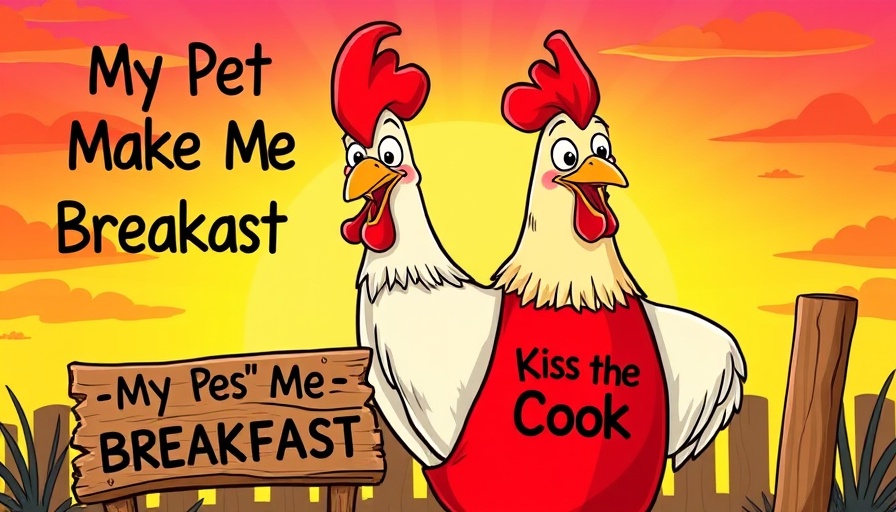
Understanding the Intricacies of Flock Dynamics
As an avian veterinarian, I often encounter unique and intriguing cases that highlight the complexities of poultry behavior and health. MysteryChicken's flock, which has become a focal point on platforms like Backyard Chickens, exemplifies the rich tapestry of interactions among birds. These interactions are not merely social; they significantly impact their overall well-being and health.
The Significance of Social Structures in Birds
A bird's social structure is vital for its psychological and physiological health. In a flock, chickens establish a pecking order that influences their daily lives. Understanding this hierarchy can aid chicken keepers in ensuring a peaceful and harmonious environment. Evidence suggests that flocks with stable social structures exhibit fewer stress-related issues, making it essential for caregivers to monitor these dynamics closely.
Health Monitoring in Diverse Flocks
The composition of MysteryChicken's flock, likely including various breeds and age groups, requires diligent observation for health concerns. Mixed flocks can sometimes lead to uneven health issues, owing to the differing susceptibility among breeds to certain diseases. Regular health check-ups and a keen awareness of the unique needs of each bird can prevent potential outbreaks, underscoring the importance of individualized care within a flock.
Implications for Aspiring Poultry Keepers
For those looking to start their poultry journey, engaging with communities like Backyard Chickens provides invaluable insights into flock management and health. Understanding flock dynamics, implementing strategies for health monitoring, and being part of a supportive network can significantly enhance the success of any chicken keeper.
Investing in Knowledge for Better Flock Management
The journey in poultry keeping is one of continual learning. Invest time in researching avian health and behavior to yield a flock that thrives both socially and physically. Connect with fellow bird enthusiasts and professionals to share experiences and gain new perspectives on flock management.
To ensure a successful and thriving chicken-keeping experience, one should actively engage in learning, exploring best practices, and applying them in day-to-day care of their flock. For more insights, consider joining poultry health forums or seeking advice from avian veterinarians like myself.
 Add Row
Add Row  Add
Add 




Write A Comment